NIL
NCAA’s House settlement to pay athletes is just the beginning, what happens next?
The House v. NCAA settlement has fundamentally changed the way college sports will function. College sports have left amateurism behind for good, and right now, questions seem to outnumber answers. How does the House v. NCAA settlement change college sports? The House settlement, which began as a class-action lawsuit against the NCAA and five collegiate […]
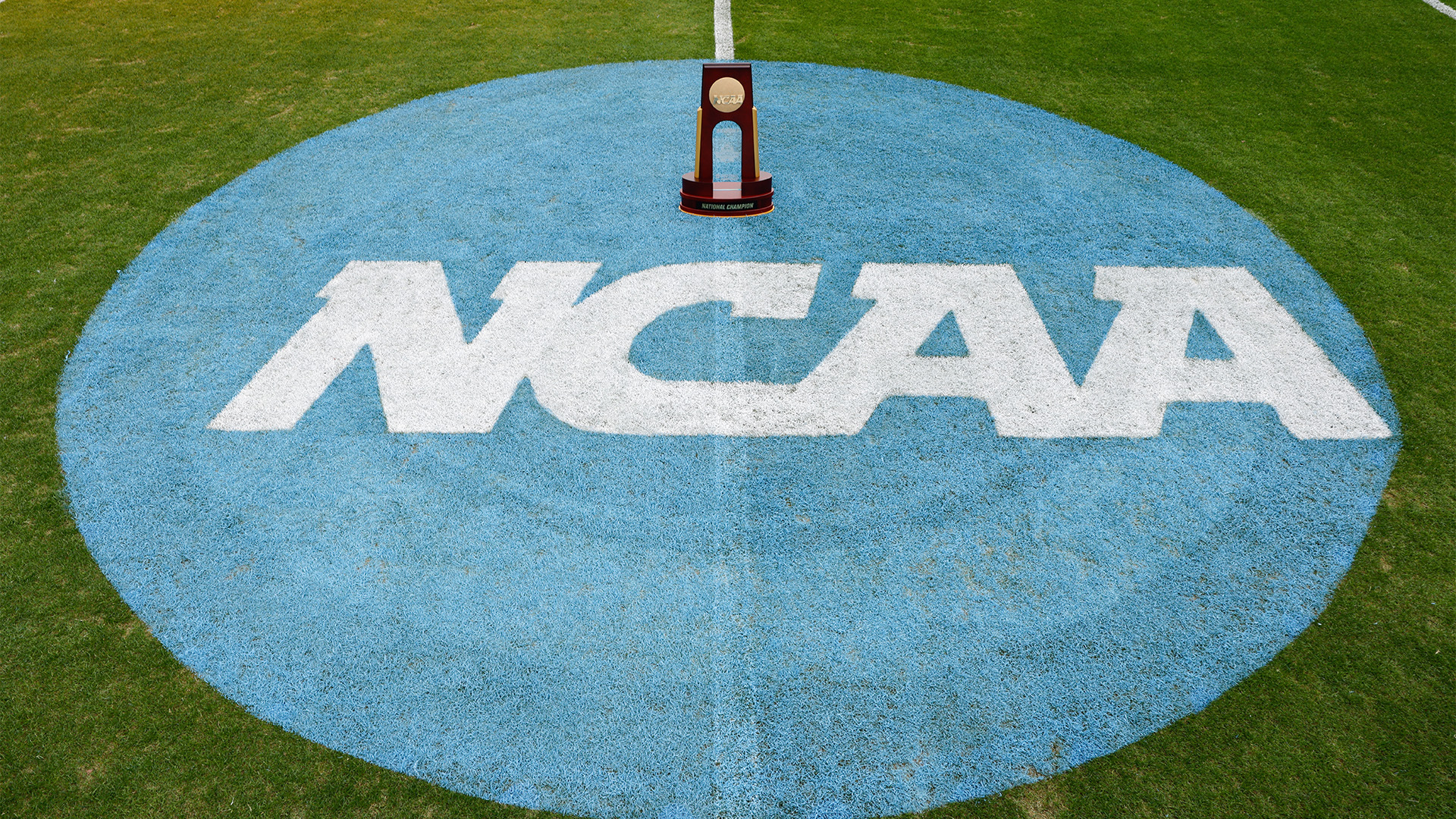
The House v. NCAA settlement has fundamentally changed the way college sports will function. College sports have left amateurism behind for good, and right now, questions seem to outnumber answers.
How does the House v. NCAA settlement change college sports?
The House settlement, which began as a class-action lawsuit against the NCAA and five collegiate conferences profiting from a former Arizona State swimmer, a TCU basketball player and others, sets up direct payments from schools to athletes for the first time. People across the country are actively debating how this new paradigm will affect universities and their athletic programs. Officials have introduced some new rules, with more on the way, but they have not yet been fully tested. Some suggest that the same issues college athletics faced before the settlement may have simply shifted focus.
Each school participating will now have a $20.5 million yearly cap to spend on its athletic programs. Football and basketball will see the vast majority of that money. NIL payments will also continue to exist in addition to the direct payments. During an interview with Panther Insider, Pitt Athletic Director Allen Greene said this is just the first step in reforming what was a broken “amateur” system.
“I think student-athlete employment is still a topic of conversation that’s going to occur,” Greene said. “I think rule setting is going to occur still, in just how we are applying all the various rules in our industry that govern what we do. And I think there’s still going to be conversations around congressional engagement, congressional involvement.”
What if schools don’t have the pool of money to pay players?
Many schools will continue to depend on wealthy alumni for support as their athletic budgets remain under pressure. Adding another $20.5 million in expenses means schools will have to make tough choices. Iowa State Athletic Director Jamie Pollard was blunt in a recent interview.
“Iowa State does not have that $20 million,” Pollard said. “But if we don’t pay it for this coming year, we have big problems, right? So we’re going to pay it.”
It’s also bigger than college athletics. Towns like Ames, Iowa, depend on college athletic programs and the tourism dollars they generate.
“Iowa State University will be faced with an athletics program with a huge annual deficit if it wants to stay in the Big 12 and if it wants to have a P4 (Power 4) athletics program,” Pollard said. “Now, we can decide we just want to have an athletics program like Northern Iowa, but that’s going to have a huge economic impact on the state, on central Iowa, on the city of Ames and on this institution.”
What will happen to NIL payments?
Those issues also don’t account for NIL payments. That money will still be available to athletes in addition to the $20.5 million pool. Just hours after the settlement received approval, leaders formed a new College Sports Commission. Brian Seeley is the man in charge. The former MLB executive and his team will review each NIL transaction to ensure it serves a legitimate business purpose and is not merely “Pay for Play.”
There will be a lot of gray areas to sift through because, up to this point, there were no rules for why a business or collective could pay a player. Conference athletic directors say it will be incumbent upon everyone to follow the rules when they are set up. Penn State head coach James Franklin said this does nothing to address the moral issue surrounding football programs, where it’s all about the dollars.
“I worry a little bit now that because of how the sport has changed,” Franklin said. “There’s people being attracted to the sport for the wrong reasons and the way the sport has changed from a transfer portal perspective and from an NIL perspective. I think there’s also young people and families that are making decisions based on a transactional experience rather than a transformational experience.”
There’s also nothing stopping a Penn State, an Ohio State or an Alabama from using the majority of their $20.5 million on their football program in addition to another $20-30 million in NIL payments. That could create an arms race that the whole settlement intended to curb. Without stronger guardrails, the gap between well-funded programs and those with fewer resources may continue to grow.
“You watch Ohio State in the men’s football game, national championship game, you don’t hear any announcers talking about NIL,” Texas Tech softball coach Gerry Glasco said. “They just don’t talk about it. And yet, Ohio State had one of the highest two or three NIL payrolls last year in college football.”
Glasco, whose school’s collective announced a second million-dollar payment to star pitcher NiJaree Canady one day before they lost in the championship of the Women’s College World Series, knows his “non-revenue” program will have to continue raising money outside of the $20.5 million. Paying a player like Canady through NIL is worth it if they want to remain relevant.
“I think it was three days after she signed, somebody told me there was over 700,000 Associated Press type articles where they said Stanford, Texas Tech and NiJa Canady and softball all in one,” Glasco said. “Seven hundred thousand times you got mentioned. Then you look at the exposure she brought to us. I think we now played 10 or 11 games on national TV.”
What will happen to “non-revenue” sports?
Whether non-revenue sports are left behind in this new college landscape is one of the many questions left unanswered in the aftermath of the settlement. It will depend on how each school divides the $20.5 million in payments and how schools chase the NIL opportunities.
Schools without football, like Gonzaga University and many others in the Big East Conference, will be flush with cash to spend on their 12- to 15-member basketball teams and their non-revenue sports teams. That could open the door to another gap between “haves and have-nots” in their respective situations. The catch is not having a football team makes it a bit harder to find that $20.5 million in a school budget.
There may also be more litigation in the near future as challenges to upcoming NIL payments make their way through the College Sports Commission. What comes next will largely depend on what rules are put in place and how they’re enforced.
contributed to this report.
NIL
SEC stalwart predicts Texas A&M to make College Football Playoff in 2025
Texas A&M could maybe be one of the most slept-on teams in the entire country next year with the way they’re currently being discounted by many members of the media. This is an Aggie team that is set to take strides forward after being on the brink of an SEC championship berth last year— albeit […]
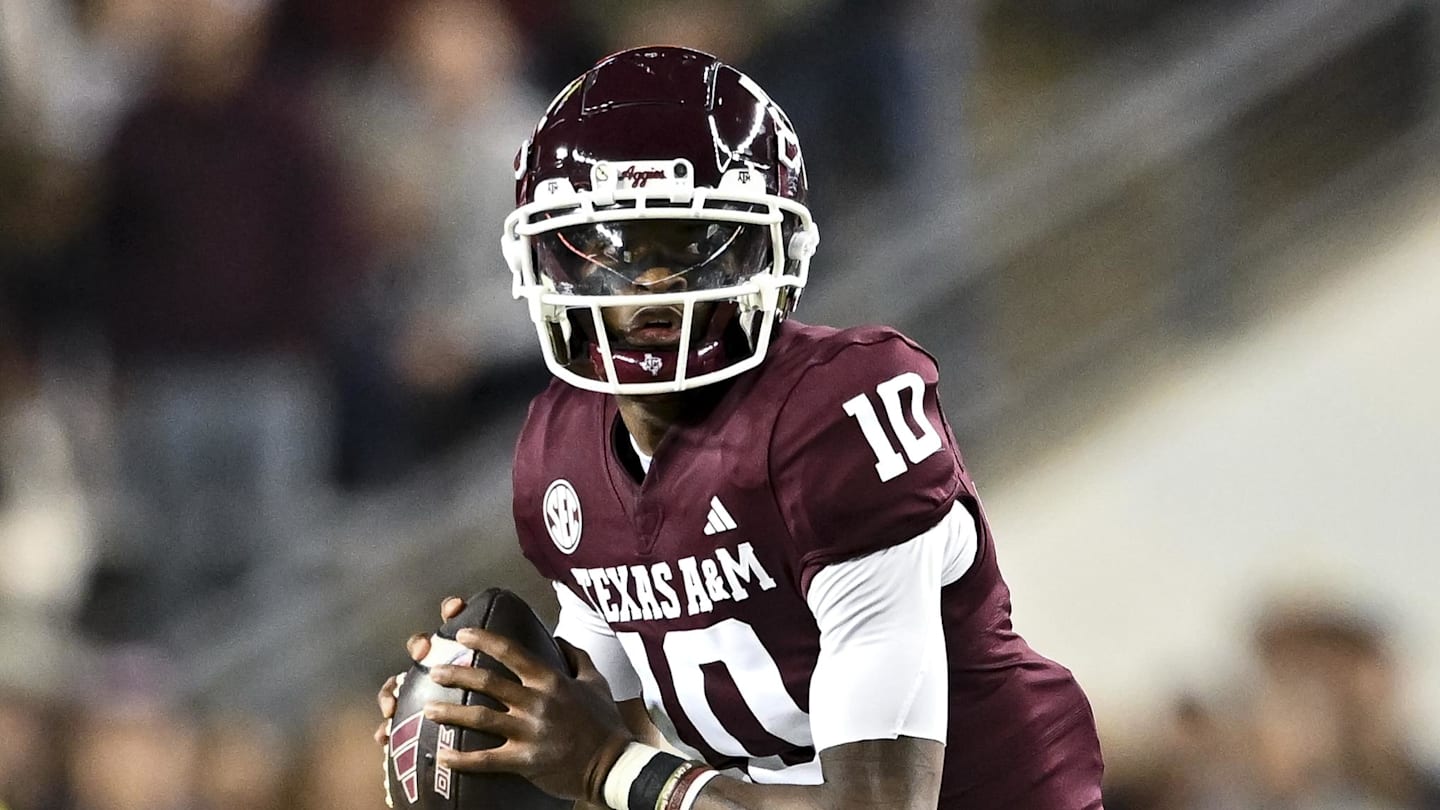
Texas A&M could maybe be one of the most slept-on teams in the entire country next year with the way they’re currently being discounted by many members of the media. This is an Aggie team that is set to take strides forward after being on the brink of an SEC championship berth last year— albeit with an easier schedule than they’ll have in 2025, but the point stands.
With so many factors favoring a big season for the Aggies, it’s puzzling that there’s not more public momentum around them being a dark horse candidate to make some postseason noise. They certainly cut the profile of a team that could do so, but you wouldn’t know it by surveying the headlines.
One veteran of the league, though, has his eye on the Aggies to do more than make a little noise— he sees them getting to the playoff. Rusty Mansell, a longtime insider for the Georgia Bulldogs, has made the call that the Aggies will be a part of the College Football Playoff in 2025.
Rusty Mansell predicts Texas A&M football to make College Football Playoff in 2025
One of the most trusted voices covering the Georgia Bulldogs for years, Mansell has been around this conference for quite some time. Diving into the Aggies apparently gave him some maroon and white optimism, as he told Michael Bratton while at SEC Media Days.
Mansell was impressed by what the Aggies have going into next year and when asked for a bold take by Bratton on the “That SEC Podcast,” he ventured that A&M would be part of the 12-team group. “They’ve got enough,” he said, calling Marcel Reed a “problem” for opponents.
He and Bratton agreed that Reed was overlooked and underrated, with Bratton comparing Reed to a media darling in DJ Lagway. Mansell mentioned Reed’s accuracy as a plus— something that Aggie fans know he showcased well down the stretch after it being a question mark earlier on.
Hopefully time will prove Mansell right. He has a good outlook here and I think he’s diagnosed things correctly for the Aggies. Don’t be surprised if, come November, these discussions are far louder than they are right now.
NIL
Roethlisberger Concerned College NIL Is ‘Taking The Love Of The Game Away’
Ben Roethlisberger expresses concern about the impact of college NIL (Name, Image, Likeness) deals on the love of the game, suggesting that financial incentives may diminish genuine passion among players. While he acknowledges the benefits, such as improved financial literacy and the ability for players to support their families, he worries that the emphasis on […]

Ben Roethlisberger expresses concern about the impact of college NIL (Name, Image, Likeness) deals on the love of the game, suggesting that financial incentives may diminish genuine passion among players. While he acknowledges the benefits, such as improved financial literacy and the ability for players to support their families, he worries that the emphasis on money could lead teams to prefer less talented but more motivated players. He reflects on historical sentiments about amateurism in college sports and suggests the need for guardrails in the evolving NIL landscape to protect players and maintain the essence of competition.
By the Numbers
- Highly touted OT recruit Felix Ojo secured a three-year deal worth $5.1 million with Texas Tech.
- The NIL model is generating significant earnings for college athletes that were previously kept under the table.
State of Play
- NIL deals have blurred the lines between amateur and professional sports, changing recruitment dynamics.
- Players are entering the NFL with previous financial experience from NIL, altering team drafting strategies.
What’s Next
Moving forward, the college football landscape may see increased regulations to manage NIL deals and protect both players and institutions. As this situation evolves, it will be critical to maintain a balance between financial opportunities and preserving the competitive integrity of the sport.
Bottom Line
Roethlisberger’s insights highlight a crucial tension in modern college athletics: the need for compensation versus the preservation of passion for the sport. Stakeholders must consider how to navigate these changes without compromising the essence of college football.
NIL
Georgia offensive lineman Jahzare Jackson arrested on drug-related charges
A Georgia football player is facing charges after he was arrested on Wednesday. Sophomore offensive lineman Jahzare Jackson was charged with felony possession of marijuana of more than one ounce, according to a report from the Athens Banner-Herald. Marc Weiszer of the Banner-Herald reports that Jahzare Jackson now faces an additional three drug-related charges. In […]

A Georgia football player is facing charges after he was arrested on Wednesday. Sophomore offensive lineman Jahzare Jackson was charged with felony possession of marijuana of more than one ounce, according to a report from the Athens Banner-Herald.
Marc Weiszer of the Banner-Herald reports that Jahzare Jackson now faces an additional three drug-related charges. In addition to the charge above, he also faces possession and use of drug-related objects, possession of marijuana less than an ounce and holding or supporting a wireless device with any part of his body. All three of those charges are misdemeanors.
Jackson was booked into the Clarke County Jail on Wednesday evening just before midnight and spent roughly four and a half hours there. He was released on bonds totaling $5,030, per the Banner-Herald.
Jahzare Jackson is not the first Georgia player to run afoul of the law this offseason. In March, receiver Nitro Tuggle and offensive lineman Marques Easley were suspended following traffic-related infractions.
Meanwhile, a current Georgia commitment is facing charges related to an alleged domestic battery. That news broke on Saturday.
Seven Cloud arrested on domestic battery charge
Jahzare Jackson was the second player or commitment in as many days to make headlines for a recent legal issue. Georgia JUCO commit Seven Cloud is facing charges regarding domestic battery that stem from an April incident in Butler County. The defensive lineman appeared in front of a judge on Monday, July 14, where he was formally charged.
According to the Butler County Times Gazette, Judge Chad Crum found probable cause to charge Cloud and ruled him to have no contact with the victim moving forward. It is a Class B misdemeanor and he will be back in court on Sept. 22.
The report states that the incident occurred on April 20. The Butler County Sheriff’s office was called to the scene of an altercation between Cloud and his significant other. He was arrested and subsequently bonded out. Police allege that Cloud “did knowingly cause physical contact with another person, in a rude, angry or insulting manner.”
This is not the first incident where the police have been involved with Cloud and his significant other. On March 27, Cloud was charged with disorderly conduct after allegedly destroying her cell phone. That is also classified as a misdemeanor and both charges came from the BCC Department of Public Safety.
While Cloud has not yet joined the Georgia program, Jahzare Jackson played in every game last season. He was expected to compete for a backup job on the offensive line this fall.
On3’s Barkley Truax also contributed to this report.
NIL
Letters
The impressive financial gymnastics Taylor Jacobs, who oversees name, image and likeness, and her team executed to enable LSU to be financially competitive in paying their athletes to play gives a literal definition to winning at all costs. There are liabilities associated with pay to play that should be considered. Amateurism in college and high […]


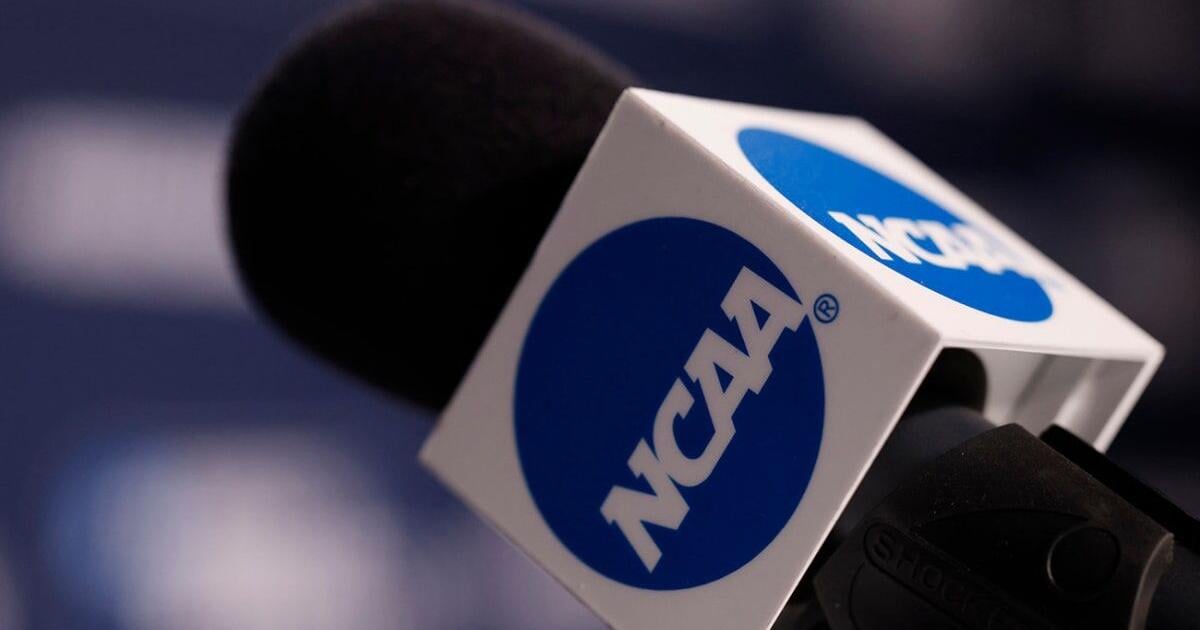
The impressive financial gymnastics Taylor Jacobs, who oversees name, image and likeness, and her team executed to enable LSU to be financially competitive in paying their athletes to play gives a literal definition to winning at all costs.
There are liabilities associated with pay to play that should be considered. Amateurism in college and high school sports no longer exists. Excelling at sports used to be about fulling a dream to be the best through hard work and sacrifice and to experience the sheer joy of accomplishment. Now, competing is complicated by a paycheck.
Have college athletes become mercenaries playing for the highest bidder? The money has become preeminent in discussions with players and has irrevocably changed players’ relationships with coaches and their teams. Forget about mentorship and team loyalty, just show me the money.
LSU athletes are professionals by definition. They are contract workers but could become employees if they are allowed to collectively bargain. How will that work?
Wining is a good thing except when the costs are too high.
JIM ROBERTS
St. George
NIL
SEC football teams with the most cupcake routes to the College Football Playoff
Did SEC football programs learn how to schedule from last season’s CFB Playoff Selection Committee? Though few games are added less than a year out, appearances are that some SEC teams believe scheduling as many cupcakes as possible is the way to go. Recently, On3’s Pete Nakos picked 11 teams with the weakest out-of-conference (OOC) […]

Did SEC football programs learn how to schedule from last season’s CFB Playoff Selection Committee? Though few games are added less than a year out, appearances are that some SEC teams believe scheduling as many cupcakes as possible is the way to go.
Recently, On3’s Pete Nakos picked 11 teams with the weakest out-of-conference (OOC) schedules in the 2025 season. Six of the 11 are SEC football teams. One of the six, Vanderbilt, gets a pass. Thanks to the Commodores’ SEC schedule, ESPN Analytics ranks Vanderbilt as having the nation’s second-toughest 12-game schedule. Another SEC team, Georgia, is rated as the 8th-toughest FBS schedule, with Alabama and Texas playing in Athens. Nakos included Auburn in the weakest OOC schedules, but with the Tigers not being a legit playoff contender, the weakness is not material.
Three of the other SEC teams are playoff contenders. For each of the three a big reason why is their out-of-conference schedule.
The three SEC football teams hoping to cakewalk to a Playoff at-large bid are Tennessee, Ole Miss, and Missouri. The three fanbases will loudly contend their teams are SEC championship contenders. But ESPN gives the Vols a 4.2% probability of winning the SEC. Ole Miss is at 2.8% and Missouri is at 0.6%. The realistic playoff goal for each team is a 10-2 or 9-3 season. None of them can afford to lose an out-of-conference game.
Using an Athlon ranking of the 136 FBS teams, Missouri has a greater risk than the Vols or the Rebels to lose an out-of-conference game. In Week 2, Missouri hosts a home game against No. 35-ranked Kansas. The Tigers open with FCS, Central Arkansas, and have two more catwalk games against No. 92 Louisiana and No. 135 UMass.
Tennessee opens with No. 57 Syracuse, in Atlanta, in what is almost a home game for the Vols. In addition, Tennessee plays FCS, East Tennessee State, No. 125 UAB, and No. 132 New Mexico State.
Four games into the Ole Miss season, Tulane (No. 48) plays the Rebels in Oxford. Ole Miss also plays FCS, The Citadel, No. 97 Washington State, and No. 112 Georgia State.
Ole Miss and Missouri have no road, out-of-conference games. Tennessee can’t claim one either.
SEC Football requires at least one non-SEC Power Opponent
For the record, Alabama Football also has two cupcakes: FCS Eastern Illinois and No. 116 ULM. But, the Crimson Tide plays two non-SEC Power teams in FSU (No. 42) and Wisconsin (No. 45), with the FSU game in Tallahassee.
NIL
Georgia predicted to lose 5-star RB for all the wrong reasons
July 20 marks the commitment date for five-star running back Derrek Cooper. Throughout the past few months Georgia has been one of his top teams if not the team leading in his recruitment. However, the last few days have seen multiple recruiting experts predict Cooper to Texas. There theoretically is still time for Georgia to […]

July 20 marks the commitment date for five-star running back Derrek Cooper. Throughout the past few months Georgia has been one of his top teams if not the team leading in his recruitment. However, the last few days have seen multiple recruiting experts predict Cooper to Texas.
There theoretically is still time for Georgia to come back and win this recruitment, but that seems nearly impossible at this point. So what went wong for Georgia in this recruitment?
It’s hard to know exactly how Georgia lost this recruitment, but a few experts have hinted at the sole reason being financial.
Cooper trending to Texas because of NIL offer
Two recruiting insiders on Sunday hinted on social media that the reason Cooper is likely to pick Texas is because of the financial package offered to him by the Longhorns.
The first report indicating Cooper’s decision is being heavily influenced by money came from Rivals insider Geoff Ketchum. It’s important to not that Ketchum is a Texas insider with Rivals, so he likely is the most knowledgeable person at Rivals about Cooper’s recruitment.
The Derrek Cooper recruitment is a reminder that money in college football matters and that it’s ok.
It sometimes matters more than official visits… and that’s ok.
It sometimes matters more than any other factor… and that’s ok.
— Geoff Ketchum (@gkketch) July 20, 2025
Georgia insider Radi Nabulsi also weighed in on this recruitment by sarcastically crediting the amazing relationship Texas formed with Cooper.
Amazing relationships being developed by Texas https://t.co/o9kCrDhnXW
— Radi Nabulsi (@RadiNabulsi) July 20, 2025
Regardless of the reason, it’s unfortunate that Cooper appears to be heading to Texas instead of Athens. Blaming the loss on a massive NIL offer is an easy excuse for fans to make when losing a recruitment, but that’s just the name of the game nowadays.
Whether Georgia likes it or not, recruiting is heavily influenced by money. So if Georgia wants to win more of these recruitments, they might have to up the NIL they’re willing to offer.
At the end of the day though, Kirby Smart has shared he will not overspend for any recruit out of high school. He’d rather reward his upperclassmen financially who have earned it over multiple years at Georgia.
So far this strategy has worked at Georgia during the NIL era, and as long as UGA keeps winning on the field then losing these recruitments isn’t so bad.
-

 College Sports2 weeks ago
College Sports2 weeks agoWhy a rising mid-major power with an NCAA Tournament team opted out of revenue-sharing — and advertised it
-
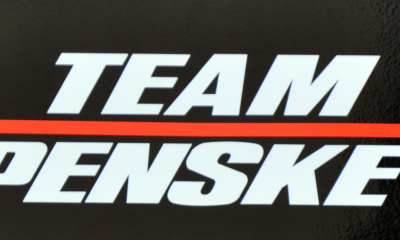
 Motorsports2 weeks ago
Motorsports2 weeks agoTeam Penske names new leadership
-

 Youtube3 weeks ago
Youtube3 weeks ago🚨 BREAKING: NBA MVP Shai Gilgeous-Alexander signs the RICHEST annual salary in league history
-

 Sports2 weeks ago
Sports2 weeks agoNew 'Bosch' spin
-
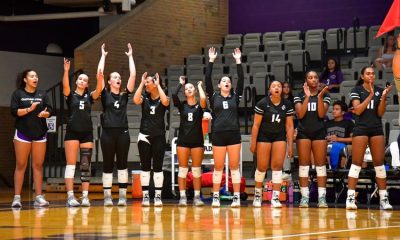
 Sports5 days ago
Sports5 days agoVolleyball Releases 2025 Schedule – Niagara University Athletics
-

 Fashion7 days ago
Fashion7 days agoEA Sports College Football 26 review – They got us in the first half, not gonna lie
-

 Sports2 weeks ago
Sports2 weeks agoE.l.f Cosmetics Builds Sports Marketing Game Plan Toward Bigger Goals
-

 College Sports2 weeks ago
College Sports2 weeks agoMSU Hockey News – The Only Colors
-

 College Sports1 week ago
College Sports1 week agoBuford DB Tyriq Green Commits to Georgia
-

 Health7 days ago
Health7 days agoCAREGD Trademark Hits the Streets for Mental Health Month






























